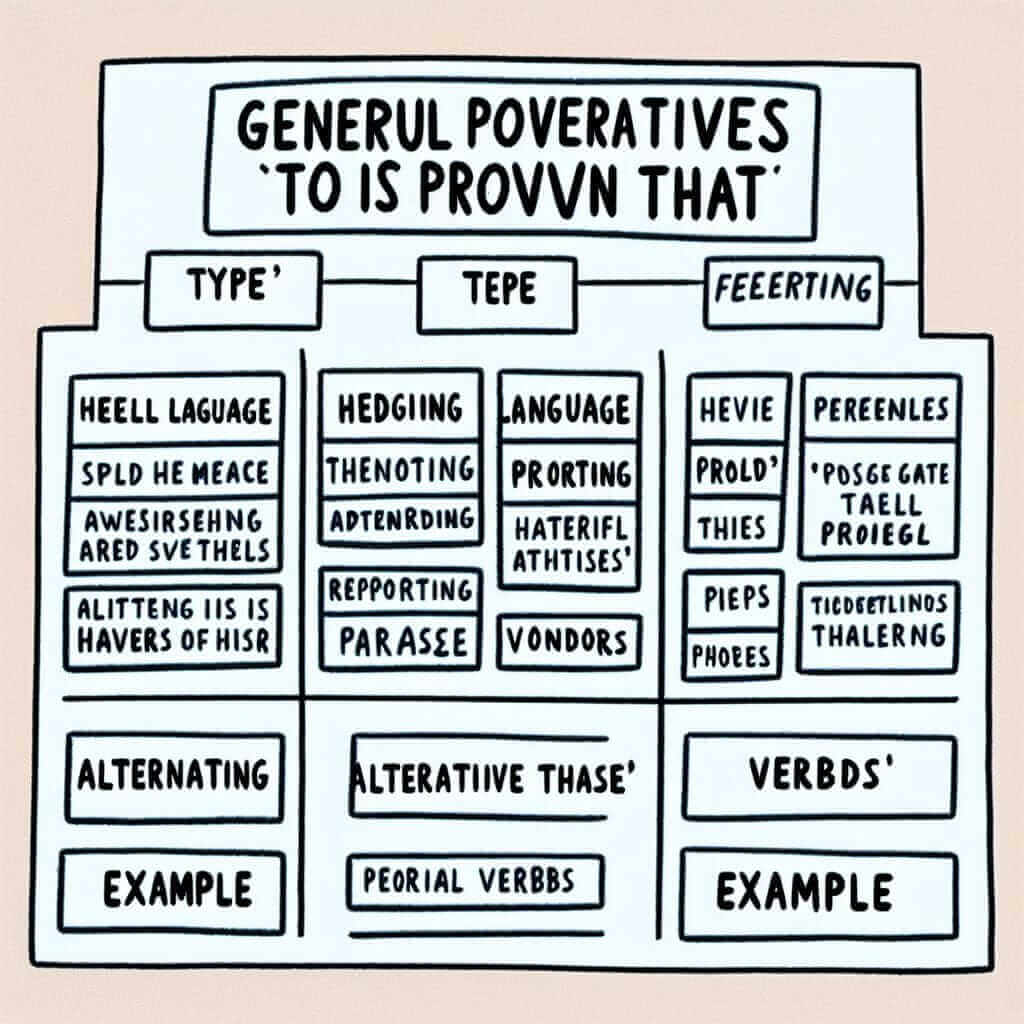The phrase “it is proven that” might seem like a powerful tool to express certainty and authority in your IELTS writing. However, its use can be a slippery slope, potentially leading to factual inaccuracies and affecting your Lexical Resource score. This article dissects the phrase, analyzes its implications in IELTS essays, and equips you with sophisticated alternatives for achieving a Band 7+ score.
Let’s analyze a few examples to understand its usage:
Example 1: It is proven that children raised in bilingual households develop better cognitive flexibility. (Writing Task 2 – Opinion Essay)
Example 2: The graph shows that it is proven that global temperatures have been steadily rising for the past century. (Writing Task 1 – Describing Trends)
Example 3: Many people believe that it is proven that classical music improves focus and concentration. (Speaking Part 3 – Discussing abstract ideas)
In each of these examples, the phrase “it is proven that” introduces a statement that is presented as undeniable fact. However, it is crucial to remember that the IELTS exam requires you to demonstrate your ability to present well-supported arguments, not absolute truths.
Understanding the Implications of “It Is Proven That”
While “it is proven that” might seem convincing, it often overstates the certainty of a claim. Scientific research rarely provides absolute “proof” – rather, it offers evidence, findings, and suggests conclusions.
Overusing this phrase can:
- Lack nuance: Scientific findings are often complex and open to interpretation.
- Sound unconvincing: Asserting something as “proven” without strong supporting evidence can make your argument appear weak.
- Limit your Lexical Resource score: Examiners look for a range of sophisticated vocabulary. Over-reliance on this phrase might limit your score.
Powerful Alternatives to “It Is Proven That”
To express yourself with more nuance and academic rigor, consider these alternatives:
1. Hedging Language:
- “Studies have shown that…”
- “Research suggests that…”
- “There is evidence to suggest that…”
- “It is widely accepted that…”
Example:
- Instead of: It is proven that exercise improves mood.
- Write: Studies have shown that exercise can have a positive impact on mood.
2. Reporting Verbs:
- “Researchers have found that…”
- “Scientists have observed that…”
- “Experts argue that…”
Example:
- Instead of: It is proven that deforestation contributes to climate change.
- Write: Scientists have observed that deforestation is a significant contributor to climate change.
3. Modal Verbs:
- “It is likely that…”
- “It is possible that…”
- “This suggests that…”
Example:
- Instead of: It is proven that early childhood education has long-term benefits.
- Write: This suggests that early childhood education can have long-term benefits.

Mastering IELTS: Applying Alternatives Effectively
Let’s look at how these alternatives can elevate your IELTS responses:
Writing Task 2 (Opinion Essay):
Prompt: Some people believe that the government should invest heavily in public transportation to reduce traffic congestion. Do you agree or disagree?
Example:
Instead of: It is proven that investing in public transportation reduces traffic.
Write: Studies have shown that cities with comprehensive public transportation systems tend to experience lower levels of traffic congestion.
Speaking Part 3 (Two-way discussion):
Examiner: What are the potential benefits of learning a second language at a young age?
Candidate: Well, research suggests that early language learning can enhance cognitive flexibility and improve problem-solving skills.
Common Errors and How to Avoid Them
-
Overusing absolute statements: Avoid words like “always,” “never,” “proves” without strong justification.
-
Lack of supporting evidence: Always provide specific examples or data to support your claims.
-
Ignoring task requirements: Ensure your response directly addresses the essay prompt or examiner’s question.
Conclusion
While “it is proven that” might seem like a tempting shortcut, using it in your IELTS writing can actually weaken your arguments and limit your lexical resource score. By incorporating hedging language, reporting verbs, and modal verbs, you can present your ideas with greater nuance, accuracy, and sophistication. Remember, the key to a high score is to demonstrate critical thinking and a nuanced understanding of the topic at hand.